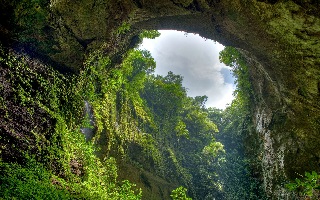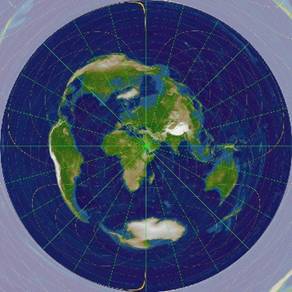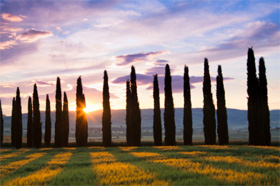When many Jews and Christians view Islam from the outside, they find parallels to their own faiths that usually inspire a great deal of curiosity. These parallels are often doctrinal, sometimes regarding the biographies of Prophets shared between the three Abrahamic faiths like Moses and Jesus (peace be upon them). Yet, sometimes striking parallels are found by the more discerning eye. Deep inquests often reveal textual and lexical similarities that are difficult—if not impossible—to explain by mere theories of one tradition borrowing from another.
As millions upon millions of Muslim devotees engage in the rites of the Hajj pilgrimage, one of the 5 pillars of Islam, we can peer into the terms used in this age-old practice that lead us to a time long before the Prophet Muhammad, may the mercy and blessings of God be upon him, was even born. Let us look at the word al-Hajj itself:
الحجّ (al-Hajj)
Typically, the entire Arabic vocabulary, like its sisters in the Semitic linguistic group, consists of words structured from triliteral triconsonantal roots. In this case the root is Hajaj (حجج). According to the classical Arabic lexicon Lisān al-`Arab it is defined:
القصد. حج إلينا فلان أي قدم
“Purpose. As in, ‘So-and-so did
Hajj unto us,’ which means he presented himself before us.”
So the general lexical meaning of the word is “intended purpose”. In the context of the Hajj, the Ka`bah within the Meccan Sanctuary is the intended destination and purpose. To list usages of this word in an Islamic context would be, for most Muslims, an appeal to the very obvious as stories of its wonder and splendor that have been related to them since childhood. However, if we peer beyond the context of Islamic rites and deep into the past, do we find this word used in the previous traditions of the Old Testament?
The answer is in the affirmative. The book of Exodus contains the following verse in reference to a Hajj in the time of Moses:
והיה היום הזה לכם לזכרון וחגתם אתו חג ליהוה לדרתיכם חקת עולם תחגהו
wa-haya ha-yōm haza lakhem li-zikrōn wa-Khagōtem otō Khag li-Yehōwa li-dorotaychem khuqat `olam taKhaguhū
“And this day shall be unto you for a memorial; and ye shall keep it a feast to the LORD throughout your generations; ye shall keep it a feast by an ordinance for ever.” (Exodus 12:14)
In this verse the King James translators rendered the uninflected noun Khag(חג) as “feast”. This word Khag is wholly cognate to the Arabic Hajj (حج). Elsewhere in the verse the word Khag is inflected as Khagotem and taKhaguhū. One must pay attention to the fact that the Hebrew phonetic “kh” (ח) is the pharyngeal fricative “h” (ح) in Arabic. Also, one must note that the phonetic “g” (ג) is cognate to the Arabic “j” (ج). So for analytical purposes in this context the verse would be rendered:
“And this day shall be unto you for a memorial; and ye shall keep it a Hajj to the LORD throughout your generations; ye shall keep it a Hajj by an ordinance forever.”
Another verse using this root is the following:
ואחר באו משה ואהרן ויאמרו אל-פרעה כה-אמר יהוה אלהי ישראל שלח את-עמי ויחגו לי במדבר
wa-ākhar bā’u Mōshe wa-Aharōn wa-yomru el-Par`o koh-amar Yahweh Elohay Yishrael shalach et-`ami wa-yakhugū li ba-midbār
“And afterward Moses and Aaron went in, and told Pharaoh, Thus saith the LORD God of Israel, Let my people go , that they may hold a feast unto me in the wilderness.” (Exodus 5:1)
The inflected word that the King James translators rendered “feast” isyakhuggū (יחגו) which is cognate to the Arabic “yuhajjū” (يُحَجّوا) so for analytical purposes the verse would be rendered in this context as:
“And afterward Moses and Aaron went in, and told Pharaoh, Thus saith the LORD God of Israel, Let my people go, that they may hold a Hajj unto me in the wilderness.”
This is not to suggest that Moses and Aaron went to Mecca and performedHajj as Muslims know it today. It is merely to exemplify that a consecrated journey and pilgrimage unto God at His Temple did, indeed, precede the rise of Islam in the 7th Century CE.
An additional and astonishing dimension to this that makes the concept of lexical borrowing between the Old Testament and the Quran improbable, if not outright impossible, is found in an alternate form of the root in Hebrew, Khug(חוג). Friedrich Wilhelm Gesenius (1846) defines this word:
“חוג
To describe a circle, to draw a circle, as with compasses. Job 26:10…m. a circle, sphere, used of the arch or vault of the sky, Pro. 8:27; Job 22:14; of the world, Isa. 40:22.”
Let us look at the verses he has cited above:
“When he prepared the heavens, I was there: when he set a compass (חוג) upon the face of the depth.” (Proverbs 8:27)
“Thick clouds are a covering to him, that he seeth not; and he walketh in thecircuit of heaven (וחוג שמים).” (Job 22:14)
“It is he that sitteth upon the circle of the earth (חוג הארץ), and the inhabitants thereof are as grasshoppers; that stretcheth out the heavens as a curtain, and spreadeth them out as a tent to dwell in.” (Isaiah 40:22)
Thus, this word not only means sacred pilgrimage and feast unto God in the Bible, it also means to encircle. To any Muslim this will be a striking discovery.
Semitic languages have been, since time immemorial, broad and deep systems of expression where one word’s many variant, but supplementary, meanings all coalesce to a greater understanding of that lexeme. So in this case we have a root which has a form meaning a feast, also meaning a pilgrimage, and in one form meaning to
encircle! The
Hajj pilgrimage, which is at its core an
encircling of the Ka`bah called
Tawāf, is concluded with none other than the Feast of the Sacrifice,
Eid al-Adha, to commemorate Abraham’s willingness to sacrifice his son at God’s command. Borrowing all these meanings buried in lexica that did not even exist until hundreds of years after the life of the Prophet Muhammad would require no short of a Semitic linguist and Biblical scholar. It should be noted that the Bible itself would not be available until 200-300 years after the passing of the Prophet Muhammad
. Such lexical depth and lucidity is consistently found throughout the Quran as God has stated therein:
“And this Quran is not such as could ever be produced by other than Allah (Lord of the heavens and the earth), but it is a confirmation of (the revelation) which was before it [i.e. the Torah, and the Gospel, etc.], and a full explanation of the Book (i.e. laws and orders, etc, decreed for humankind) - wherein there is no doubt from the the Lord of the Worlds” (Quran 10:37)
_001.jpg)

._001.jpg)


